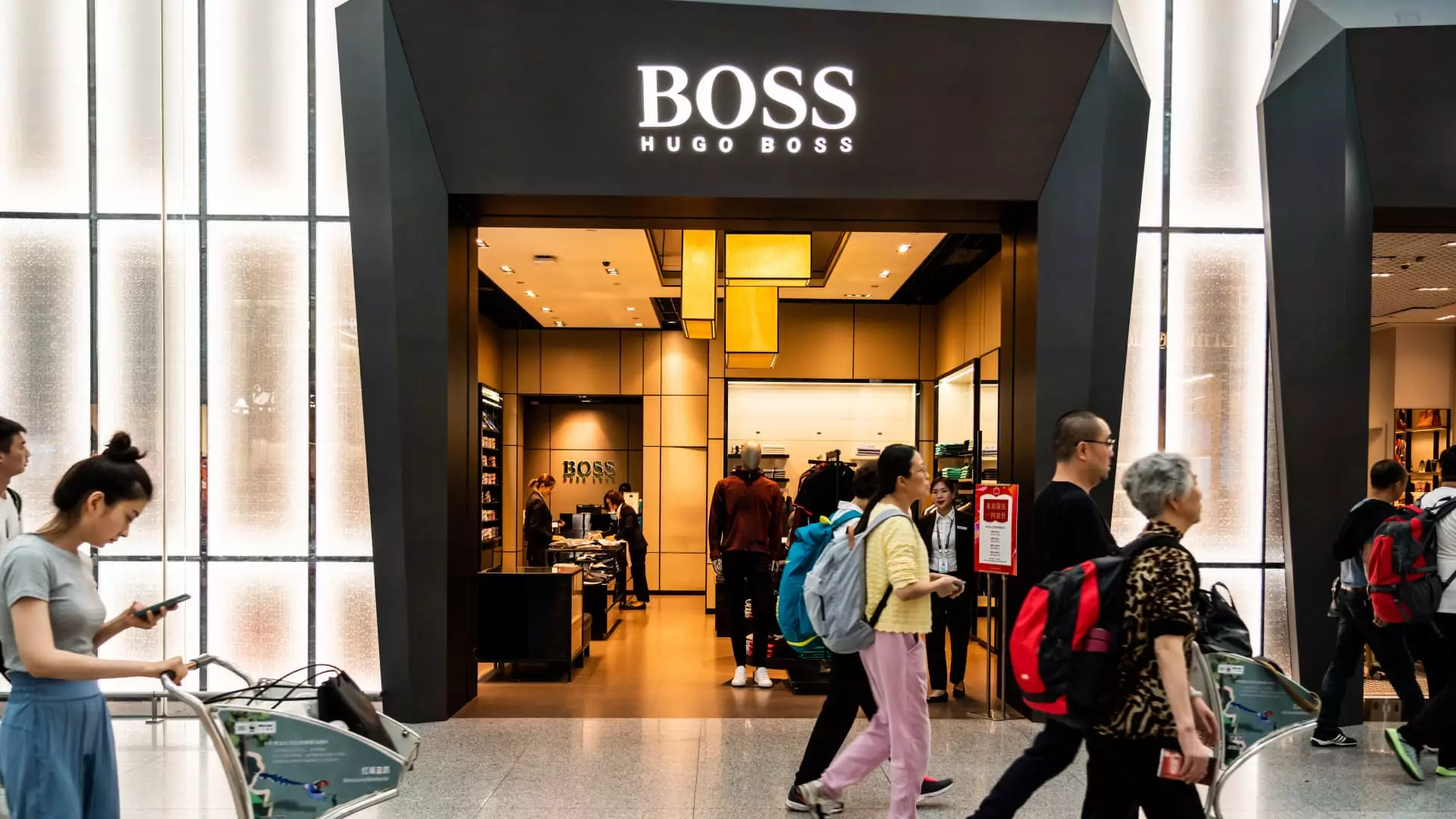The luxury fashion sector is facing turbulent times, as demonstrated by Hugo Boss shares plummeting by 10% following the company’s decision to cut its sales outlook. The German fashion powerhouse announced a revised full-year sales forecast of up to 4.35 billion euros, down from a previous estimate of up to 4.45 billion euros. This unexpected change was attributed to ongoing macroeconomic and geopolitical challenges, with China and the U.K. being highlighted as particularly problematic markets.
The CEO of Hugo Boss, Daniel Grieder, acknowledged the impact of global uncertainties on the company’s performance, emphasizing their commitment to investing in their strong brands, BOSS and HUGO. Despite the uncertain timing of a potential macroeconomic recovery, Grieder expressed confidence in the company’s ability to sustain above-trend growth and expand its market share. This revision marks the second adjustment to sales forecasts this year, with a notable deceleration in growth projections for 2024.
The latest financial report revealed a 1% decline in Hugo Boss’ group sales in the second quarter, primarily driven by reduced sales in Asia and Europe. Operating profit also took a hit, dropping by 42% year-on-year to 70 million euros due to softer sales trends and strategic investments. Despite these challenges, Grieder remains optimistic about a return to profitable growth in the second half of the year. The luxury sector as a whole has been grappling with macroeconomic and geopolitical uncertainties, impacting the performance of major brands like Burberry and LVMH.
The struggles faced by Hugo Boss are mirrored across the luxury fashion industry, with Burberry shares plummeting by 16% after issuing a profit warning and Richemont reporting minimal sales growth. The decline in Chinese consumer spending, a once lucrative market for luxury brands, has been a significant factor in this downturn. However, there are signs of a shift in consumer behavior, with Chinese shoppers resuming their overseas spending habits post-lockdown, contributing to the strength of Asian destinations like Japan.
Swetha Ramachandran, a global equities fund manager at Artemis Fund Managers, offered a nuanced perspective on the Chinese luxury market, suggesting that the slowdown in domestic spending could be offset by overseas purchases. As the luxury sector navigates through challenging times, it is crucial for brands to adapt their strategies and capitalize on changing consumer trends. The key to sustained success lies in resilience, innovation, and a deep understanding of evolving market dynamics.
The sharp decline in Hugo Boss shares serves as a stark reminder of the fragility of the luxury fashion industry. While the road ahead may be fraught with obstacles, it also presents opportunities for brands to reinvent themselves and forge stronger connections with their consumers. By staying agile, responsive, and forward-thinking, luxury brands can weather the storm and emerge stronger on the other side.


Leave a Reply